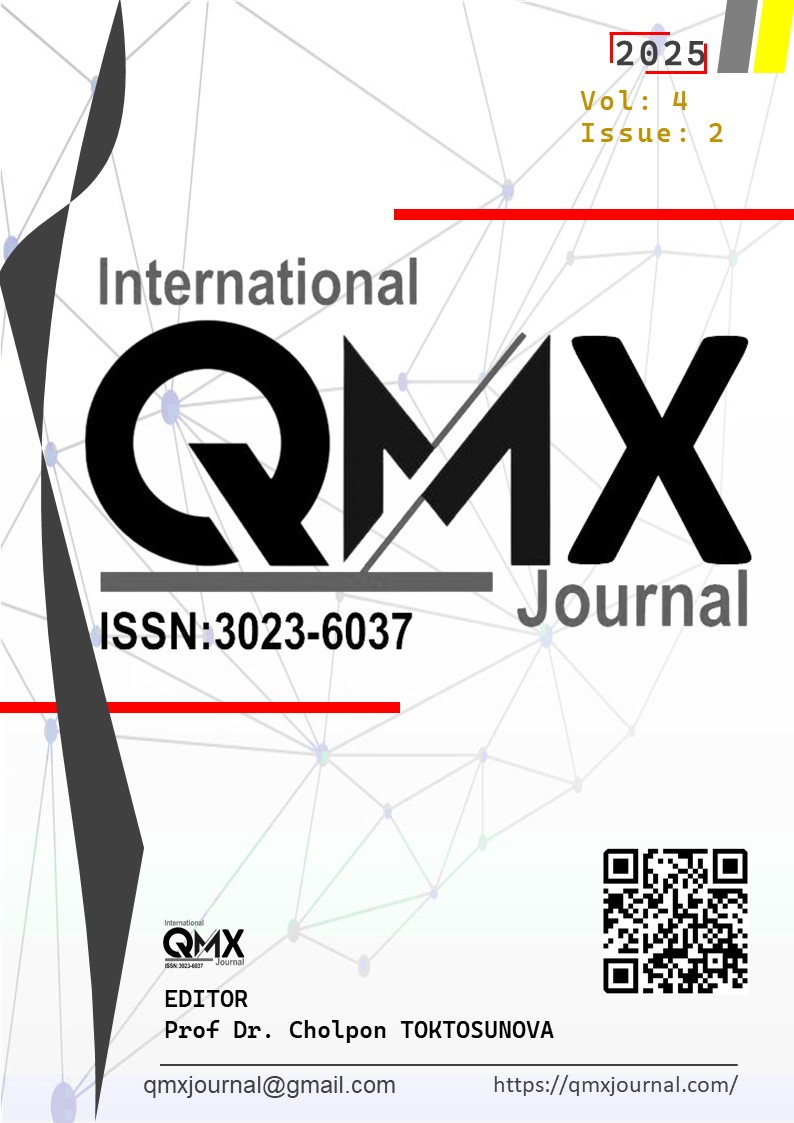Author :
Abstract
Bu çalışmanın amacı öğretmenlerin gelir düzeylerinin eğitim kalitesine etkisini belirlemektir. Çalışmada nicel çalışma yöntemi ile tarama modeli tercih edilmiştir. Bu çalışmada tarama modeli kullanılmıştır. Çalışma basit tesadüfi örnekleme yöntemi ile araştırmaya dahil edilen 134 öğretmenden oluşmaktadır. Bu çalışma nicel bir çalışma olup, çalışmada araştırmacı tarafından bir anket formu hazırlanmış ve katılımcılara 20 sorudan oluşan bu anket uygulanmıştır. Toplanan verilerin analizi, araştırmanın temel problemiyle ilgili olarak hem kuramsal hem de pratik çözüm önerileri sunacak şekilde dikkatlice gerçekleştirilmiştir. Bu süreçte, veri setinin kapsamlı bir şekilde incelenmesi için SPSS istatistik programı kullanılmıştır. Öğretmenlerin gelir düzeyleri, ders hazırlığı, sınıf yönetimi ve mesleki motivasyon gibi faktörlerle doğrudan ilişkili olup, eğitim kalitesini olumlu veya olumsuz yönde etkiler. Kadın öğretmenler, gelir düzeylerinin eğitim kalitesine etkisini erkek öğretmenlere göre daha fazla hissederek ekonomik koşulların mesleki tatmin ve öğrenci ilişkileri üzerindeki önemini daha fazla vurgularlar. Yaş gruplarına göre, genç öğretmenler gelir seviyelerinin eğitim kalitesine etkisini daha fazla fark ederken, yaşı ilerlemiş öğretmenler bu farkı daha az algılar. Lisans ve lisansüstü mezunu öğretmenler arasında, gelir düzeylerinin eğitim kalitesine etkisi konusunda anlamlı bir fark bulunmaz ve her iki grup da ekonomik koşulların eğitim üzerindeki etkisini benzer şekilde algılar. Kıdem seviyeleri arasında, kariyerlerinin başındaki öğretmenler ekonomik koşullara karşı daha hassas olduklarından, gelir seviyelerinin eğitim kalitesine etkisini daha belirgin hissederler. Kadın öğretmenler ekonomik koşulların eğitim kalitesine etkisini erkeklerden daha fazla fark eder ve bu fark, iş-yaşam dengesindeki sorumluluklardan kaynaklanır.
Keywords
Abstract
The aim of this study is to determine the effect of teachers' income levels on the quality of education. In the study, quantitative study method and survey model were preferred. Survey model was used in this study. The study consists of 134 teachers who were included in the research by simple random sampling method. This study is a quantitative study and a questionnaire form was prepared by the researcher and this questionnaire consisting of 20 questions was applied to the participants. The analysis of the collected data was carefully carried out in a way to provide both theoretical and practical solutions to the main problem of the study. In this process, the SPSS statistical program was used for a comprehensive analysis of the data set. Teachers' income levels are directly related to factors such as lesson preparation, classroom management and professional motivation and affect the quality of education positively or negatively. Female teachers feel the impact of income levels on the quality of education more than male teachers and emphasize the importance of economic conditions on professional satisfaction and student relationships more than male teachers. According to age groups, younger teachers are more aware of the impact of income levels on the quality of education, while older teachers perceive this difference less. There is no significant difference between teachers with undergraduate and graduate degrees in terms of the impact of income levels on educational quality, and both groups perceive the impact of economic conditions on education in a similar way. Across seniority levels, teachers at the beginning of their careers are more sensitive to economic conditions and perceive the impact of income levels on education quality more significantly. Female teachers recognize the impact of economic conditions on the quality of education more than male teachers, and this difference is due to responsibilities in work-life balance.





